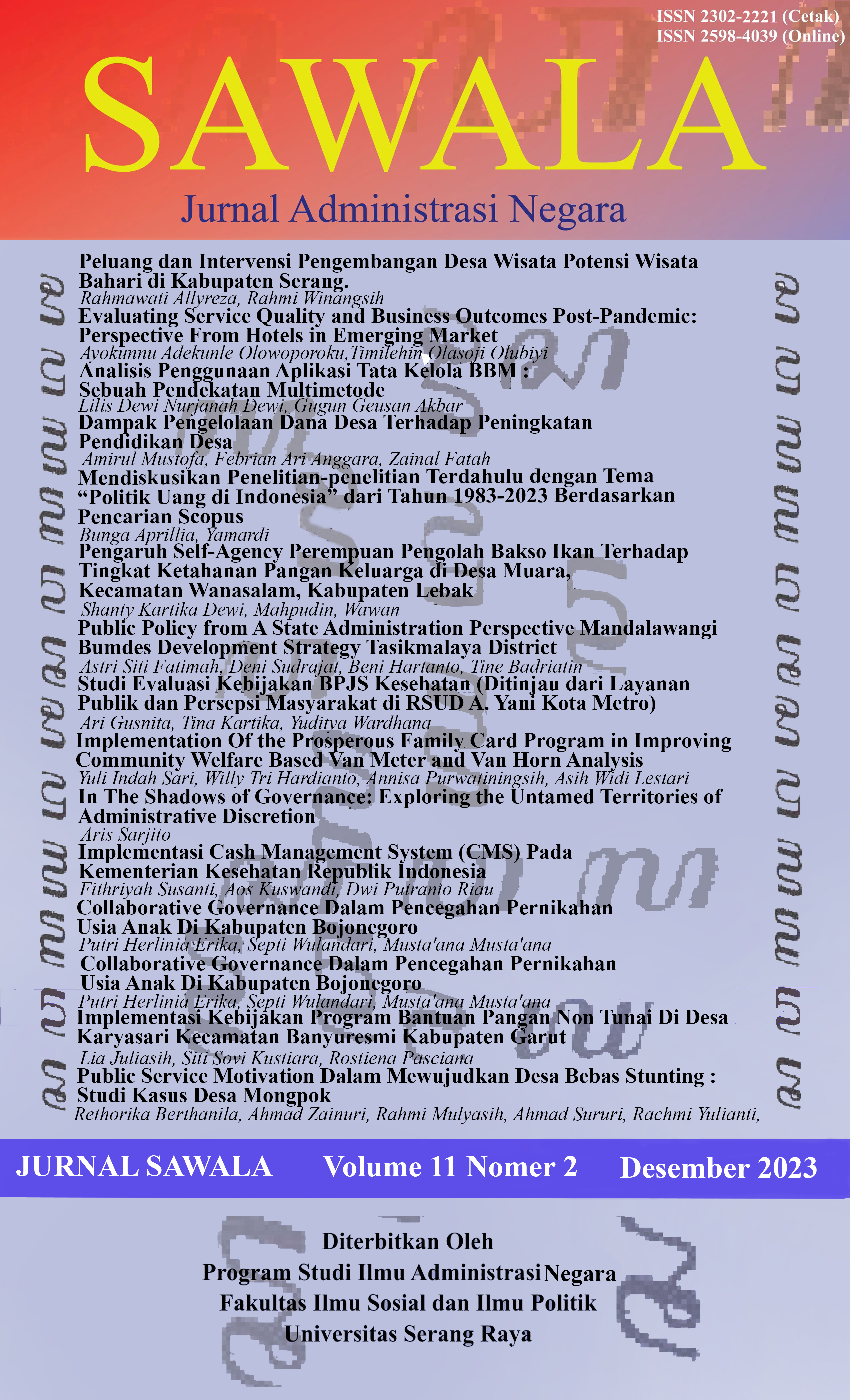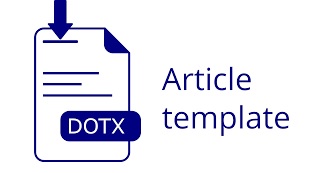Mendiskusikan Penelitian-penelitian Terdahulu dengan Tema “Politik Uang di Indonesia†dari Tahun 1983-2023 Berdasarkan Pencarian Scopus
DOI:
https://doi.org/10.30656/sawala.v11i2.7608Keywords:
Literature Study, Money Politic, Scopus WebsiteAbstract
Money politics in Indonesia is a phenomenon that often occurs in general elections at the central, regional and village levels. There are very few studies on money politics in the world, in a Scopus search from 1983-2023 there were only 50 documents discussing it. Among the 50 writers, there are dominated by writers from Indonesia who study money politics in Indonesia. This research is descriptive research using the literature study method. The literature study method is a series of activities related to methods of collecting library data, reading, and taking notes, and managing research materials. Based on Scopus search results, of the 50 documents only 7 (seven) documents are relevant to Indonesia's political conditions. This previous research document discusses the origins of money politics from the new order to money politics from a gender dan religiosity perspective. The results of the research state that money politics is about people's willingness to buy votes but normatively it does not determine the choice of political party that gives monetary gifts.
Keywords: Literature Study, Money politic, Scopus website.
References
Abdurrachman, H. , Majestya, N. , & Riyanti, R. (2020). Women as the victim of politics: Experiences in the 2019 legislative elections in Indonesia. International Journal of Innovation, Creativity and Change, 11(5), 463–476. https://www.scopus.com/inward/record.uri?eid=2-s2.0-85081718871&partnerID=40&md5=3aa15aebb11bce67034c342211c7f284
Aspinall, Edward., & Sukmajati, M. (2015). Politik uang di Indonesia : patronase dan klientelisme pada pemilu legislatif 2014 (1st ed., Vol. 1). PolGov.
Fossati, D., Aspinall, E., Muhtadi, B., & Warburton, E. (2020). Ideological representation in clientelistic democracies: The Indonesian case. Electoral Studies, 63. https://doi.org/10.1016/j.electstud.2019.102111
Hadiz, V. R. (2004). Indonesian local party politics: A site of resistance to neoliberal reform. Critical Asian Studies, 36(4), 615–636. https://doi.org/10.1080/1467271042000273275
Hadiz, V. R. (2007). The localization of power in Southeast Asia. Democratization, 14(5), 873–892. https://doi.org/10.1080/13510340701635704
Tawakkal, G. T. I., & Garner, A. D. (2017). Unopposed but not uncontested: Brokers and “vote buying†in the 2017 Pati district election. Contemporary Southeast Asia, 39(3), 491–510. https://doi.org/10.1355/cs39-3e
Tawakkal, G. T. I., Suhardono, W., Garner, A. D., & Seitz, T. (2017). Consistency and vote buying: Income, education, and attitudes about vote buying in Indonesia. Journal of East Asian Studies, 17(3), 313–329. https://doi.org/10.1017/jea.2017.15









